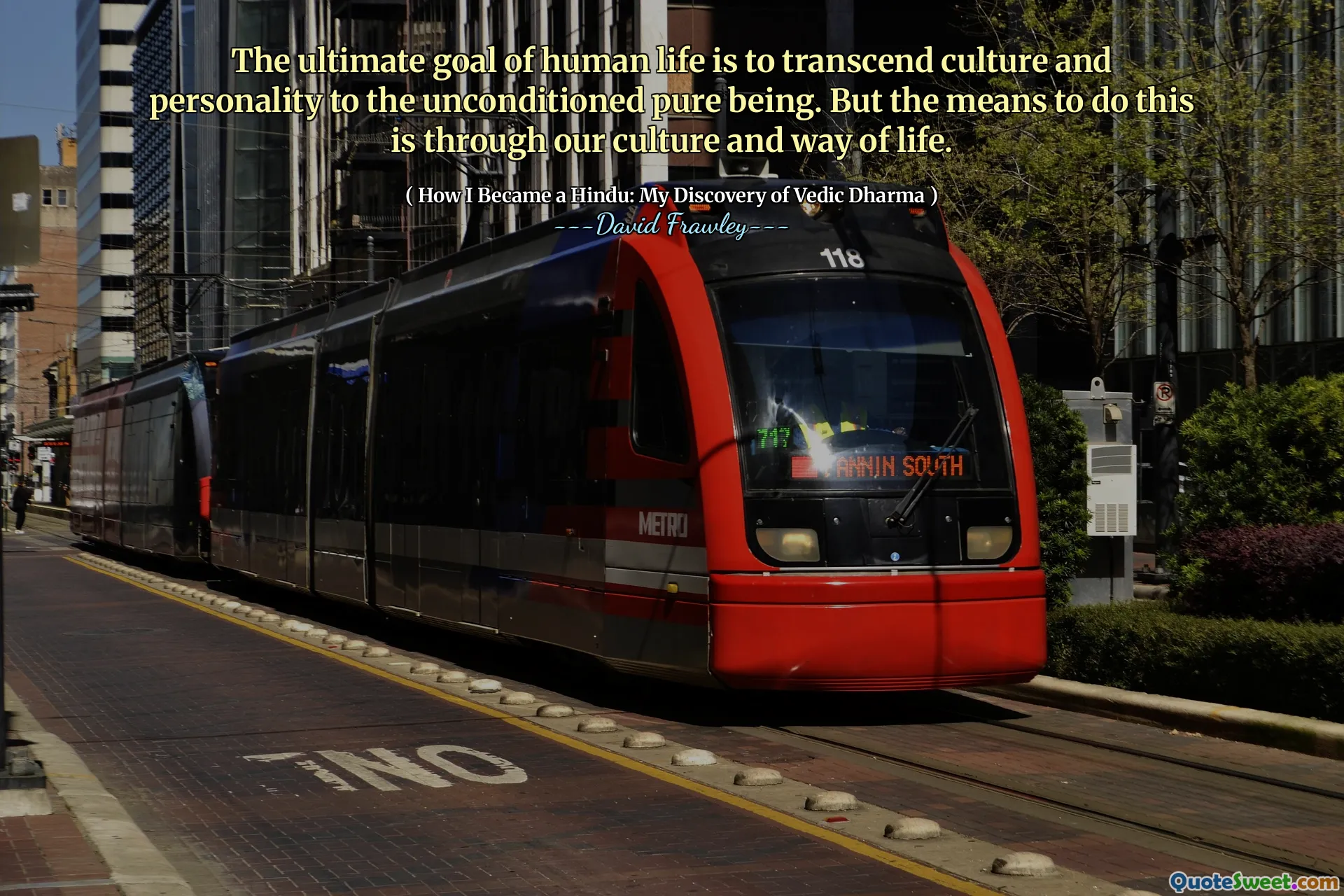
The ultimate goal of human life is to transcend culture and personality to the unconditioned pure being. But the means to do this is through our culture and way of life.
This profound quote from David Frawley's How I Became a Hindu: My Discovery of Vedic Dharma sheds light on a paradox central to spiritual growth. It suggests that while the final aim is to reach a state beyond all conditioned identity—including culture and personality—this very transcendence is made possible only by first engaging deeply with those same elements. The journey to the "unconditioned pure being" does not bypass culture and personality; instead, it embraces them as necessary vehicles for transformation.
This insight invites reflection on the intertwined relationship between individuality, cultural heritage, and spiritual evolution. Culture often acts as the lens through which individuals perceive the world. Personality, shaped by genetic and experiential factors, colors one’s interaction with reality. To transcend these conditioned layers implies a profound inner awakening that recognizes the essence beneath these external forms.
Interestingly, Frawley indicates that culture and lifestyle are not obstacles but gateways; these provide context, discipline, values, and symbolic frameworks that can facilitate the spiritual quest. Rather than denying one's roots or fleeing cultural identity, the quote encourages harnessing it consciously for ultimate freedom. It resonates with many philosophical and spiritual traditions where the external framework is the foundation upon which inner realization is built.
This approach aligns harmoniously with Vedic teachings—emphasizing dharma (right living) as the springboard towards moksha (liberation). It reminds us that true transcendence is not a rejection of the human experience but its conscious and awakened fulfillment. This quote speaks to anyone grappling with the tension between individuality and universality, inviting a synthesis that honours both.


